LG G4 vs LG G3
Leather beats plastic
That's all very good news, because as impressive as the LG G3's screen is resolution-wise it's not perfect and in particular suffers from a drop off in brightness when not viewed straight on.
Power and storage
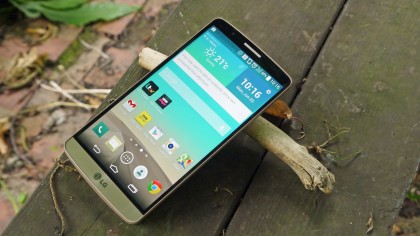
LG has made the slightly surprising decision to use the 1.8GHz hexa-core Snapdragon 808 in the LG G4, rather than the octa-core Snapdragon 810 favoured by the likes of the HTC One M9.
Despite being a slightly lower end chip LG promises no slowdown and given that it's coupled with 3GB of RAM we can believe that.
The LG G3 wasn't exactly lacking for power either, with its 2.5GHz quad-core Snapdragon 801 processor and 2GB of RAM, but we did notice some lag in the interface. The LG G4 has the older handset well beat in the performance stakes, with the lag that plagued the LG G3 absent from the G4.
Storage is a real highlight of the G4, as not only does it have 32GB built in, but it has a microSD card slot and supports up to 200GB of expansion. That's a whole lot of space.
The 16GB LG G3 can't quite match that, but it supports a respectable 128GB of expansion with a microSD card.
Camera
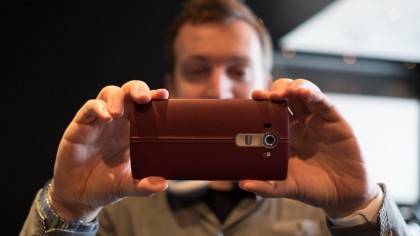
LG has big camera ambitions - that was clear from the LG G3 - and it's even more so with the LG G4. The G3 has a 13MP snapper with optical image stabilisation and a laser autofocus for instant focusing.
Get daily insight, inspiration and deals in your inbox
Sign up for breaking news, reviews, opinion, top tech deals, and more.
But the LG G4 has a 16MP sensor with an f/1.8 lens aperture, which is a big improvement on the G3's f/2.4 aperture and allows far more light in for superior low-light performance.
Like the LG G3 it has optical image stabilisation, but it's better than ever in the LG G4 with a higher tolerance for shaking, so images come out sharp and blur free.
The LG G4 also has some fancy new modes and features, like light and object recognition, lots of manual mode options to give you more control and options like 'Quick Shot', which lets you take a photo by double tapping the rear key even when the phone is locked.
If the LG G4 isn't locked, then it lets you load the camera in just 0.6 seconds, making it one of the fastest smartphones for picking up and shooting, although when it is locked this time extends to 2 seconds.
In practise the LG G4 has a fantastic camera that compares favourably to other flagship handsets like the Samsung Galaxy S6 and iPhone 6.
The LG G4's camera performs very well in low light conditions, but in bright scenes it really impresses, and although the LG G3's camera is no slouch, the newer handset's snapper is a clear improvement.
The LG G4's front-facing camera is an upgrade over the G3's too, as while the LG G3 has just a 2.1MP sensor the LG G4 has an 8MP wide-angle one.
Battery
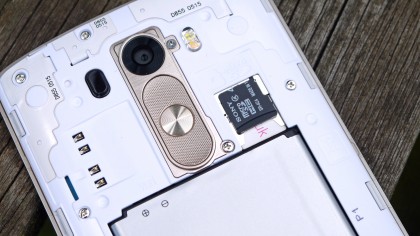
On paper the battery should be exactly the same in each phone, as both the LG G4 and the LG G3 have 3000mAh juice packs, and in an increasingly rare move both are removable.
We were hopeful that the LG G4 would have longer life than the G3, as while there's no change to the battery the G4 should be less power hungry and offer a more efficient processor too.
However we found that the LG G4 is just as poor at holding on to its charge as the LG G3, with a full day of moderate use leaving the G4 with just 15% battery and sometimes less.
The demanding high resolution screen can shoulder a lot of the blame for this, but it seems that the LG G4 hasn't been optimised as well as the G3, meaning that the older handset has the edge when it comes to holding on to its battery. Hopefully LG will release software improvements soon that will eke out more battery from the G4.
Some versions of the LG G3 also came with wireless charging features, something that is sadly missing from the LG G4.
Features
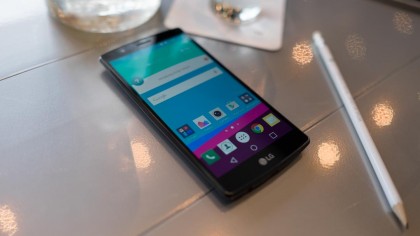
Most of the features that we haven't already mentioned are aspects of the interface. The LG G4 takes most of the good stuff from the G3, but adds new things like Smart Board, which combines key information from various apps and displays it all on a single widget, and Smart Alert, which provides activity suggestions based on the weather, your location and your interests.
Both phones also feature LG's innovative rear key, which is designed to be easier to hit than side-mounted buttons but can take a bit of getting used to.
Verdict
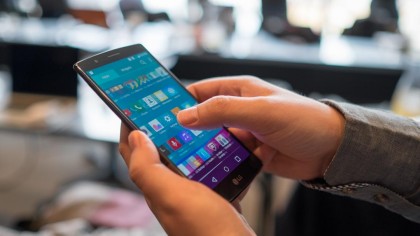
The LG G4 was always almost guaranteed to be a better phone than the LG G3 on the strength of its specs and features, and now that we've had a chance to try out the LG G4 we can confirm that it is indeed a more accomplished smartphone.
More importantly it has fixed some of the biggest issues with LG's last handset, such as its slightly disappointing screen and not particularly premium design.
The LG G3 will still be available to buy for the next year or so, and will cost a lot less too - so if you're desperate to buy something from the double-lettered brand, check out our review of the LG G4 before making a decision over which LG is the handset for you.
James is a freelance phones, tablets and wearables writer and sub-editor at TechRadar. He has a love for everything ‘smart’, from watches to lights, and can often be found arguing with AI assistants or drowning in the latest apps. James also contributes to 3G.co.uk, 4G.co.uk and 5G.co.uk and has written for T3, Digital Camera World, Clarity Media and others, with work on the web, in print and on TV.